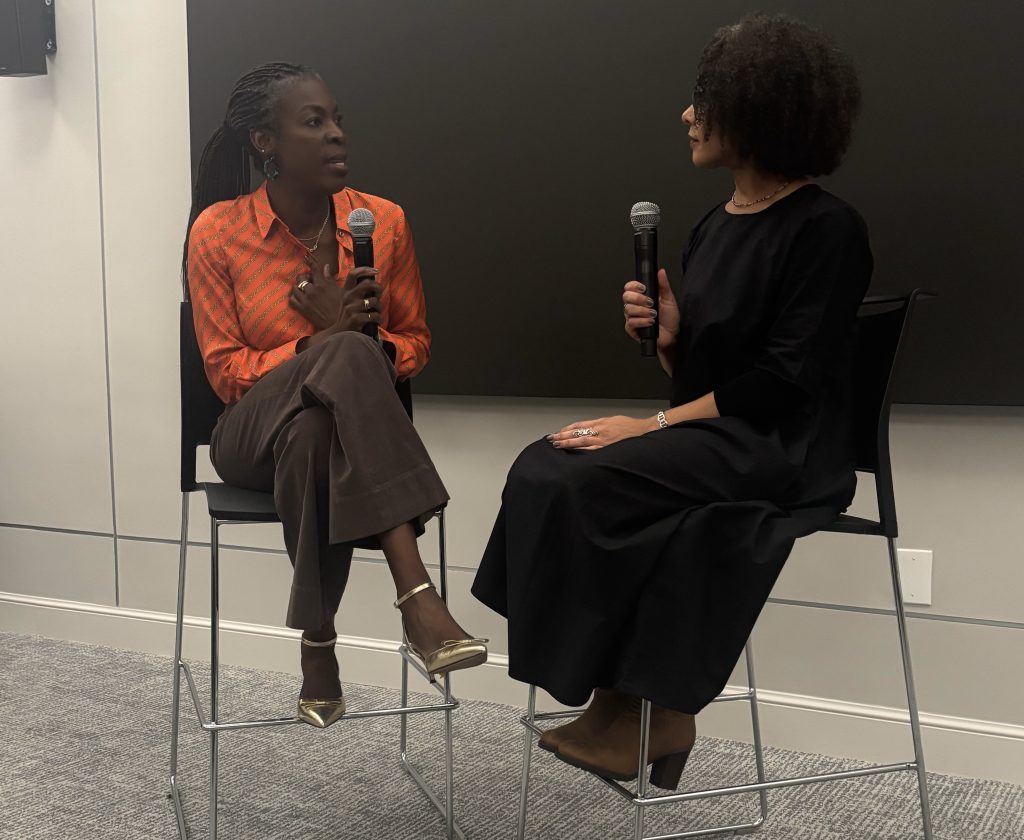
The sun shone through the windows, casting a gentle glow against the pale, whitewashed walls of Woolson House, the one place at Rollins where I feel as if I’m not even at Rollins but perhaps at a small cottage by the sea or some other secluded writer’s haven. Gertrude Cole Scholar Diana Evans stood at the board, her soft voice projecting casually to the six of us students slumped on the surrounding couches and chairs, notebooks or computers in hand. As she assigned us a writing exercise, and we silently got to work, I didn’t feel like I was in a class; rather, I wrote with the ease I would late at night in the comfort of my room, no one awake to bother me. The workshop, the uniqueness of this classroom structure, made me feel not like a student surrounded by other students but rather a writer in a safe space with other writers.
Evans is an award-winning British journalist and novelist from London. She is the author of four novels, “26a”, “The Wonder”, “Ordinary People”, and “A House for Alice”, and a collection of essays and journalism titled “I Want to Talk to You.” Evans visited Rollins from February 17 to February 28, and, during her time at Rollins, I had the honor of participating in a workshop class she co-taught with Victoria Brown, professor of English at Rollins. She also hosted a Q&A session in another one of my writing classes, Writing for Publication, and led a public talk on-campus, during which she explored the importance of Black British literature and shared insights on her writing process.
As part of Evans’ workshop class, the other students and I each submitted a fiction or nonfiction piece that we wanted to revise. After a group workshop session with Brown and a session on character development with Evans, we each met with Evans one-on-one to discuss our piece, along with suggestions for revision. We also had the opportunity to ask questions related to both our piece and writing in general. During my one-on-one session, I received valuable compliments and critiques on my piece, and I felt that Evans’ feedback helped me determine how to reshape my work to better fit my intent.
During both her talk and her class sessions, Evans emphasized the importance of crafting characters first, then building a story around them, as stories should always be driven by their characters. As part of her talk, she discussed the importance of characters in her own work, referencing her novel “A House for Alice,” a novel inspired by her mother, who immigrated to Britain from Nigeria. While the characters in the novel are immigrants from Nigeria, the novel does not center around their identity as Black Britons. Rather, the story explores the characters’ lives, naturally diving into the struggles they face due to their identity. Evans discussed how though social commentaries exist in literature, they should not act as the driving force of the story.
As someone who enjoys crafting characters but often struggles with building a story to drop them in, I found Evans’ insights relatable. Throughout the course of her class, while I learned how to better shape my characters, I in turn learned how to better shape my story plots, and I grew to view these two story elements more in tandem, with character naturally flowing into plot.
According to Evans, her stories often come to her following the process of creating characters. Evans referred to the overarching theme of a story as the “master plot” or “tapestry.” As she said during her talk, “We must know that words have power, that we find our tapestries as we write.” To slowly unravel this tapestry, Evans develops six to eight major scenes when outlining her novels, then she builds the rest of the story from there, after which she is able to write a draft. “I can’t go from beginning to end until I know the whole thing, and that may be on Draft Ten,” she said. When she starts a draft, Evans follows a strict daily writing routine, producing 1,000 words a day.
The humble nature with which Evans spoke about her writing made me feel that, through hard work, I could achieve what she had; she made me view writers as none other than ordinary people who have something buried deep inside them that they’re dying to let out.
When asked by students for advice regarding how to get started, Evans described the importance of motivating yourself, especially if you have a story you want to put on paper.
“If you have the fire in you to write,” she said, “then you just have to do it.”
The opinions on this page do not necessarily reflect those of The Sandspur or Rollins College. Have any additional tips or opinions? Send us your response. We want to hear your voice.

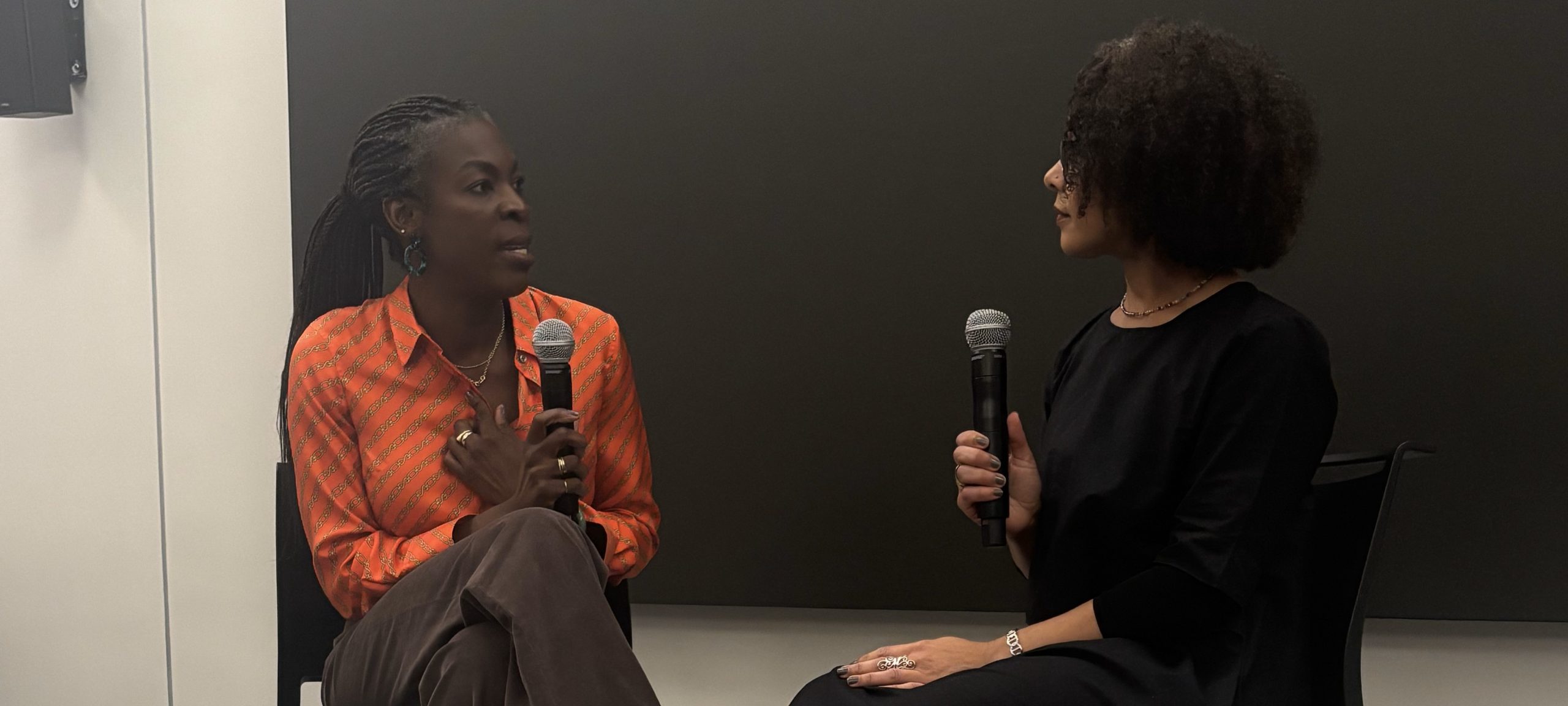
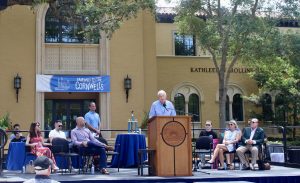

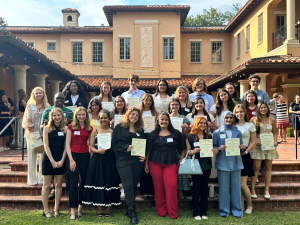
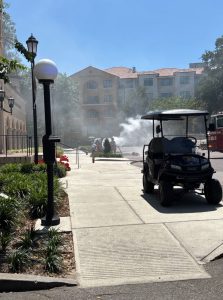
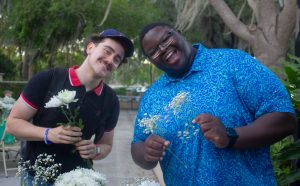






Comments are closed.